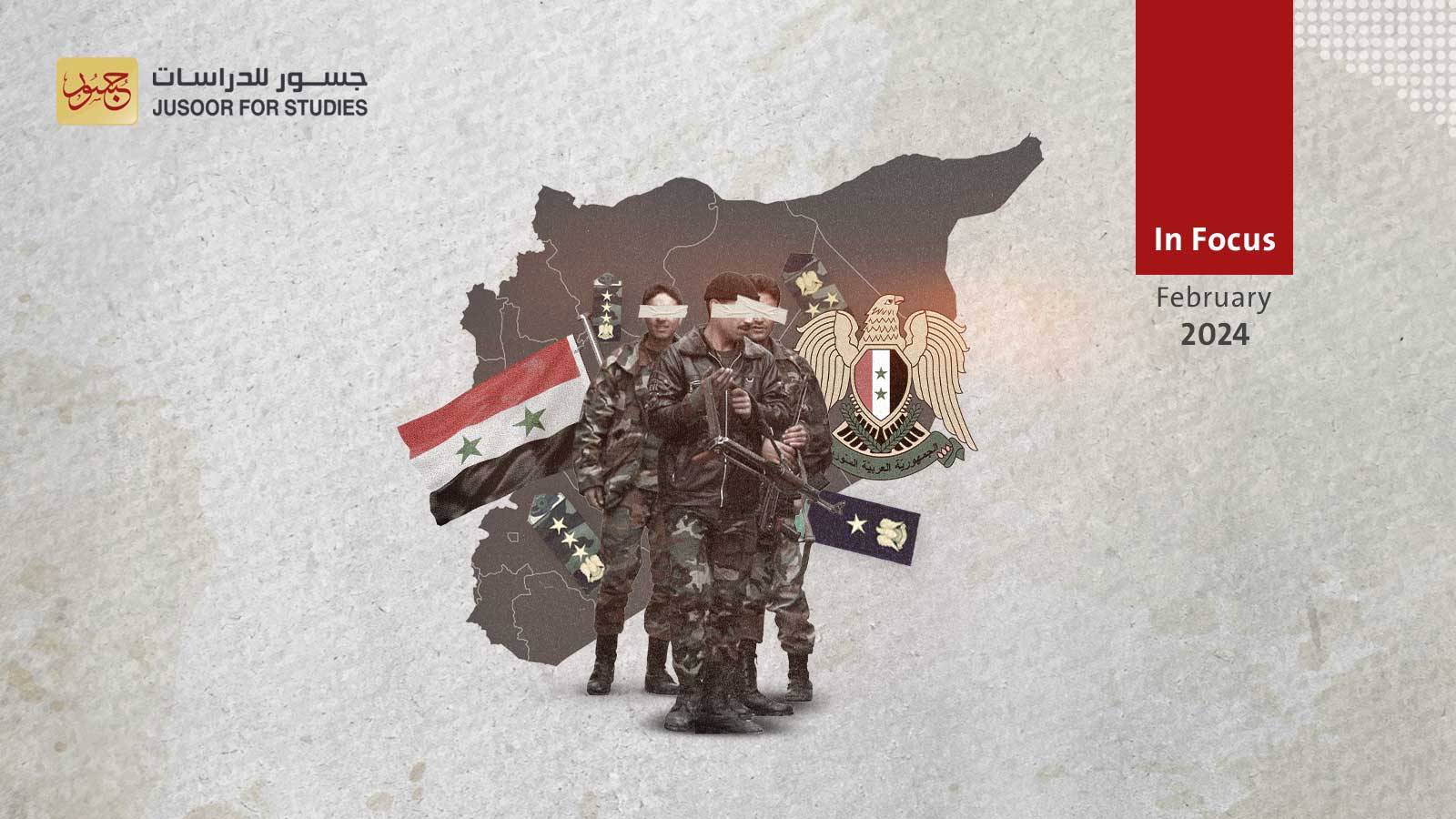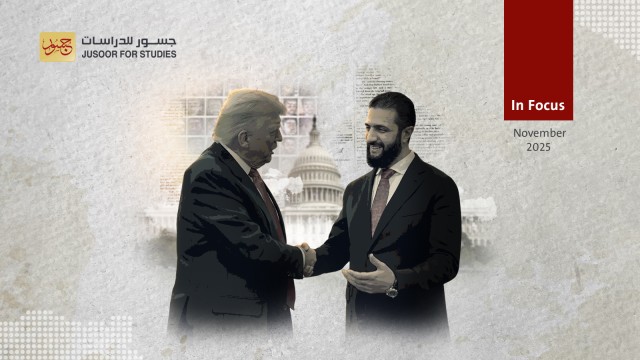Why has the Syrian Regime Restructured its Security Apparatus?
In February, the Syrian regime adjusted the structure of its security and intelligence apparatus. President Bashar al-Assad issued a secret circular, via the director of the National Security Office, stipulating that all security agencies affiliated with the Military Intelligence and Political Security divisions, as well as the General Intelligence and Air Force Intelligence branches, would now be subsumed under the National Security Office, which would be directly oversee them and coordinate between them.
This came after Assad made several changes in the leadership of the security services, starting in January. He relieved Major General Ali Mamlouk of his position as Director of the National Security Office, appointing him instead as an advisor to the General Secretariat of the Presidency of the Republic for Security Affairs. Assad also appointed Major General Kifah Mulhem as Director of the National Security Office, and appointed Major General Kamal Hassan as Director of the Military Intelligence Division.
The National Security Office was established in 2009 by secret Regulatory Decree No. 36 issued by the presidency that year. Reporting directly to the president, it is responsible for developing national security strategies, monitoring and evaluating the activities of the country’s various security agencies, managing coordination between them, and training and developing their personnel through courses at the National Institute for Security Studies, at the State Security headquarters in Kafr Soussa, Damascus.
The National Security Office had been intended to replace the National Security Office, part of the Baath Party’s national command. The office was headed by high-ranking Baathist Mohammed Saeed Bekheitan, then Major General Hisham Ikhtiyar, who was killed in the bombing of the Syrian Central Crisis Management Cell in Damascus in 2012, then Major General Mohammed Dib Zaitoun, and then Major General Ali Mamlouk, who was replaced in January by Mulhem.
The decision to restructure this system coincided with the regime’s first time ever announcement of a meeting between Assad and the heads of the security branches, as well as its agenda, something it had never previously disclosed. This was also the first time that it had announced a decision to restructure the leadership of the security services and lay out plans to develop their capabilities and improve coordination among them.
The regime’s decision to restructure this apparatus sends a number of messages to multiple sides; firstly, it wants to show that it is able to control these agencies and that it is restructuring them to strengthen them and make them more effective in confronting any attempt at rebellion, whether by undisciplined militias or a popular opposition movement.
By restructuring, the regime is also trying to reduce the powers of top security officials, over whom it had ceded some control to Russia and Iran. Assad also appointed younger leaders who have proven their absolute loyalty to him.
Moreover, the regime is using this belated step to hype its commitment to reform, even of its notorious security services, a cosmetic step aimed at appeasing Arab and Western states with which it has been engaged in faltering efforts at diplomatic normalization since 2023. It is hoping that such moves could lead to an easing of the economic sanctions it is facing, especially as neither this nor any of its other goals for normalization have yet materialized.
The regime is thinking forward to what may follow the war in Gaza, and working to regain control over its security agencies. This stems from two fears: firstly, that its allies, especially Iran, may be weakened by the conflict; and secondly, that the regime itself may be forced to engage in an Arab, regional or international political settlement.
However, the decision to strengthen the security services clearly indicates the regime’s indifference to any real reform in the structure of those services, as originally stipulated in the United Nations-mediated negotiations for a peace deal. Moreover, heavy use of these agencies is part of the regime’s DNA and approach to governing, which was one reason for the revolt against it in 2011.
The regime is likely to take further measures to restructure its security system, in order to circumvent the sanctions and prosecutions it could face down the line. These measures could include dissolving certain branches, merging them with others or simply renaming them. For example, it may dissolve the Air Force Intelligence Department and the Military Security Division, restructure them with new names, transfer their staff to the General Intelligence Department or form a special Military Intelligence department to absorb them.
It could also merge the Political Security Division (under the Ministry of the Interior) into the General Intelligence Department (State Security). It may close down certain branches, such as dissolving the 215 Raid Branch of Military Intelligence or merging it with another entity such as the Counter-Terrorism Branch.
The regime can also be expected to issue legislation and decrees restructuring the security services, such as by establishing a new security umbrella administration which would – nominally - oversee all the remaining security agencies, while they would largely remain subordinate to their old leaders in terms of their tasks and roles. It is also likely to remove the directors of certain agencies to evade sanctions or to promote itself in the media.
In conclusion, the regime’s plan to reshape its security system appears to be more of a public relations campaign than a genuine shift in behavior. Damascus wants to appease governments both in the Arab and Western camps as the process of normalization has faltered. On the other hand, it may be genuine in its efforts to bring authority over these agencies back under the roof of the Presidential Palace, having lost much of it to Russia and Iran, along with the heads of the security services themselves.








